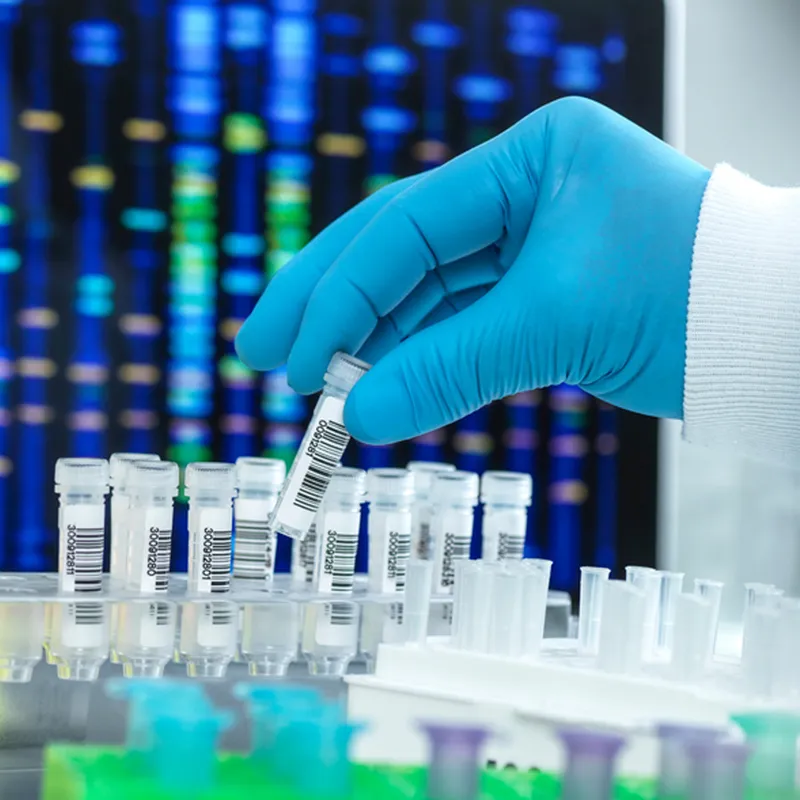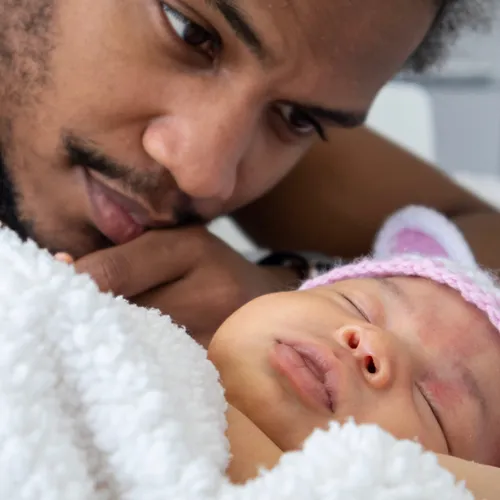Grandparent DNA Testing
The Grandparent DNA test can determine a biological relationship between grandparents and grandchildren. Also, it is an indirect way of potentially proving paternity. For example, this could be useful if the potential father was deceased.

How does Grandparent DNA Testing work?
We use the DNA samples taken from mouth swabs to generate a DNA profile for each test participant. Next, we compare the DNA profiles and determine the likelihood of a relationship. In this case, the likelihood that the participants are biologically related as grandparent and grandchild.
Any child of the grandparents in the test will have a DNA molecule that is a 50% match to their mother’s (grandmother in test) and 50% match to their father’s DNA (grandfather in test). In turn, 50% of the genetic material inherited from each grandparent, will be passed on from their child. Therefore, DNA markers within the DNA profiles of potential grandparents will appear in the DNA profile of their biological grandchildren.
Frequently Asked Questions
What grandparent DNA tests are available?
There are two types of Grandparent DNA Test.
Duo grandparent test
In this test, DNA samples from both the potential grandfather and grandmother are taken. This is in addition to the DNA sample of the potential grandchild.
The DNA profiles generated for both grandparents, include a complete set of the DNA markers inherited by any child born to said grandparents. A selection of those DNA markers will be passed on once again, becoming visible in the DNA profiles of their biological grandchildren. Having DNA from both potential grandparents, increases the number of relevant DNA markers for the scientists to analyse.
If both potential grandparents are available for testing, then the duo grandparent DNA test should always be used. This test provides a greater chance of receiving conclusive test results when compared to the single grandparent DNA test.
Single grandparent test
In this test, the DNA from a single grandparent (either the potential grandfather or grandmother) is analysed and compared to the DNA of the child. This test should only be used if the second grandparent is unavailable.
If only one paternal grandparent is available for testing, it is very important to include a DNA sample from the biological mother of the child. This will increase the chance of receiving conclusive test results.
How accurate is the grandparent DNA test?
These tests are very accurate. We achieve conclusive DNA results in many cases. But, as with any DNA test of this type, there is a small chance that the test will yield an inconclusive result. In addition, the risk of an inconclusive result depends on who is available to take part in the test. Please call and speak to a Clinical Advisor for the latest information regarding inconclusivity rates.
Inconclusive results are not the same as negative results. An inconclusive result means that the analysis cannot provide an answer to the question asked. Inconclusive results occurs in only a small number of DNA tests. Causes of inconclusive results in include:
- The DNA markers that show matches between test participants are very common in the general population. As a result, the matches do not provide enough evidence to confirm if a biological relationship exists.
- There is a lower level of DNA matches than expected. This is due to the chance nature of inheritance in families.
- Where matches may have occurred, mutation has changed the DNA marker. As a result, this can cause mismatches at further locations within the DNA profile.
Please refer to the disclaimer on this page for further information.
How much does a grandparent DNA test cost?
You can see examples of grandparent DNA test prices using the link below.
How long does it take to get your grandparent DNA test results back?
The analysis time needed in the lab for the grandparent DNA test is three to five working days*. We will always endeavour to get the results to you as quickly as possible. However, during busy periods in the laboratory, results may only be available on the fifth working day.
* Quoted lead-times are based on from when samples are booked onto the laboratory system. Also, quoted lead-times do not apply when issues arise from documents or samples provided that do not meet our quality guidelines.
How do I order a grandparent DNA test?
Here are the options available to you:
- Order a free grandparent test from DNA Clinics*.
- Call 0800 988 7107 to make an appointment at a DNA Clinic or order a *DNA self-collection Home Kit.
- Call 0800 988 7107 to arrange a home visit from a sample collection officer.
- You or your solicitor can contact us to organise a legal grandparent DNA test for court purposes.
* Please note, you can only use self-collection kits for peace of mind purposes only. This test cannot be used for legal purposes.
How do I collect my own grandparent DNA samples?
We have provided some useful guidance for test participants collecting their own samples for a DNA grandparent test.

Did you know?
While other companies analyse just 23 locations on the DNA molecule, we standardly test 43 different loci for all grandparent DNA relationship tests to ensure the most reliable and accurate results. In addition, Including a known parent can also increase the accuracy of your results. Again, while other DNA testing companies will charge you for this, we offer this option at no additional cost.
Disclaimer
Due to the science of complex DNA relationship testing and the chance nature associated with DNA inheritance, there is a small risk of an inconclusive result with this test. An inconclusive result means that the DNA analysed and compared between individuals does not provide enough evidence to establish the biological relationship being tested. The risk of obtaining an inconclusive result varies due to several factors including, the test participants available for testing, the individual’s specific DNA profiles and how unique or common they are and the number of locations on the gene tested.
It is important that you are aware of the risk of an inconclusive result before ordering or booking this test, as you will be signing consent to confirm your understanding and acceptance of this. Refunds will not be issued for inconclusive results.
However, we will always attempt to achieve a conclusive result for your DNA test. As such, there may be further options available to you to achieve this (additional fees apply). These are:
- The addition of other test participants. Crystal Health Group will recommend which individuals could be included to improve the chance of obtaining a conclusive result.
- Further analysis to compare additional loci (DNA locations).
If you are using the DNA Clinics service and booking an appointment, the above options will be explained to you. If you are ordering a self-collection kit, please call 0800 988 7107 and speak to a member of our team about these options before you order a DNA kit.
Local DNA Clinics, and mobile locations throughout the UK
For your convenience, we have a network of DNA Clinics throughout the UK. As a result, we can provide grandparent DNA test appointments for you in your local area. Alternatively, we can arrange for a certified sample collection officer to visit your home or other convenient location of your choice.
Head Office
Crystal Health Group
The Old Chapel
Manchester
M30 0NG





